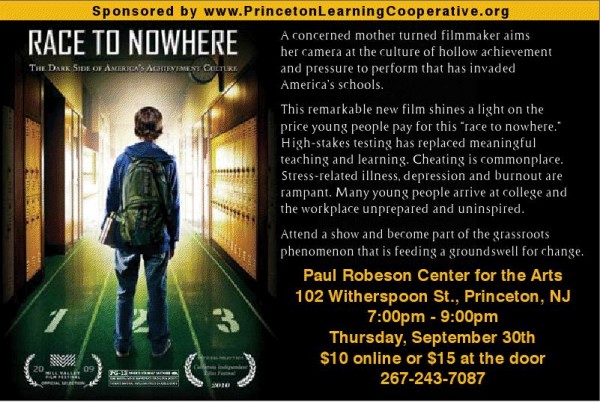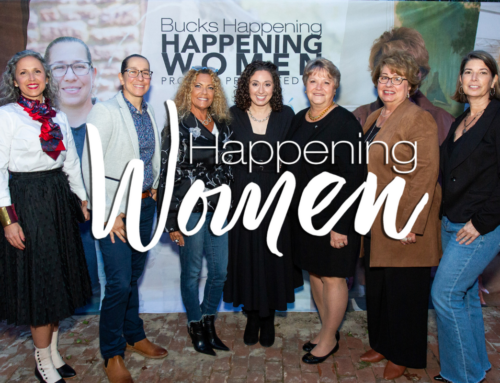
He started to explain the foundation for the The Learning Cooperative– a more authentic, self-directed educational experience for teens. Joel and the other board members behind TLC are passionate about creating an environment that better nurtures a love for learning and motivates teens to seek information on their own. Based on a similar program based in Massachusetts called North Star, the The Learning Cooperative will allow students to customize their own learning program without the constraints of grading or a set curriculum. To find out more about the program and ways to get involved, we got a chance to ask the TLC board members a few questions. Check it out:
BH: How did you initially hear about educational programs like North Star and what compelled you to recreate that here in Bucks County/NJ?
TLC: Paul and Joel met through mutual contacts at Snipes Farm and Education Center where Paul is the beekeeper and Joel is on the board of directors. They were both pretty disillusioned with the traditional educational model and decided to start something to remedy many of the flaws in that system and help improve the lives of teenagers and their families. They initiated a series of community meetings where the discussion centered around what makes a good education and how structures could be created to make that education possible. Out of those meetings a core group of 4 people – Paul Scutt, Joel Hammon, Martin Smith, and Ajay Dravid, started meeting regularly to evaluate various progressive school models to find one that fit the principles and ideas that came out of the large group meetings. Recently, we have added a new board member, Eleanor Newton who brings a wealth of information and talent to the organization. After reviewing many different programs, the core group identified the principles used by a center called North Star in Massachusetts as most in line with our ideas. Joel was aware of North Star from reading a book called The Teenage Liberation by Grace Llewellyn. In that book, she describes how families could use homeschooling to create a more authentic educational experience for their children – not homeschooling in the sense of re-creating traditional schools at home, but the idea of pursuing your own passions and using community resources to accomplish goals that young people set for themselves with the guidance and support of the adults and other people in their lives. North Star was created to support teenagers and families who might not otherwise be able to use this approach to education. The success of North Star over the last 14 years is something we hope to replicate.
We are aware of the discontent among parents, students, teachers and the general public with traditional education. Instead of just complaining, we wanted to create an option for those disaffected with the system. While we recognize that traditional schools are sufficient for many students and learning can occur there (all of the people on our board did well in traditional schools), we know that for many other students, traditional methods can prevent learning from happening.
BH: Who is allowed to attend your educational center? What are the age requirements?
TLC: We welcome all teenagers and their families, but are always open to other members if we feel they can successfully use our center.
BH: When can we expect to see a facility opening in our community? Will you hold any open meetings with interested community members?
TLC: We have started a pilot program in Princeton for 2010 with the grand opening scheduled for September of 2011. We are hosting an event on September 30th in Princeton that will be a screening of the new movie Race to Nowhere with a discussion of the topics raised in the film.
BH: How are your students evaluated when attempting to get into college if there is no grading system? How do you feel this type of evaluation system improves their educational environment?
TLC: The process of college admissions for home-schooled students is fairly straightforward and there are a number of ways that it can be approached. A homeschooled student can study anything from an accounting degree to an art history degree, just like their public school counterparts. The biggest point to remember – and this runs against everything that most people will tell you – is that you do not have to attend junior high or high school in order to go to college or to have a rich and fulfilling life. That is absolutely a fact. We're not sure there is an official number of how many families home-school in the United States, but we believe that millions of young people are home-schooled. Most colleges and universities have established admissions procedures for home-schooled students. The best thing to do is check with the schools you are interested in applying to and be sure to meet their requirements. Mostly this will involve keeping a portfolio of your work (there are many amazing and creative ways to do this) and just documenting your work carefully. The important thing is that whether you are in a traditional school or using our approach, you’ll be evaluated on the work you have done. Other students we work with will start taking community college courses for credit when they are 16 and 17 and so when they apply to a 4 year college at 18, they are applying as a transfer student so the college looks at their college transcript, not their high school work.
We feel not having grades or credits, etc. enhances the educational environment in very powerful ways. The most important way is that it puts the focus squarely on learning for learning’s sake and not for arbitrary or counterproductive reasons.
BH: How do you translate the principles of your school, which may seem a bit radical to some, to your prospective students and potentially skeptical family members?
TLC: We don’t feel that this approach to education is inherently radical. Basically what we are saying is that people learn best when they can pursue what they are passionate about and have a large measure of control over how, when and why that learning takes place. We don’t think this is a radical or controversial idea and that most people who are grown and have left school would readily agree with us.
Perhaps what most people find radical is the idea that young people can be trusted with this kind of power. We believe that given the right kinds of support, resources and encouragement, young people can successfully exercise a large amount of control over their lives and educations in particular. We feel that instead of waiting until after high school or after college to begin their lives, young people can be challenged to start building that life right now and that we can support them in those efforts.
What seems more radical to us is the traditional system that, by law, takes children out of their families and communities for nearly 12 years of their lives and burdens them with work that is often irrelevant to the real world and then erodes curiosity and self-confidence by testing, grading and ranking them.
BH: With no set curriculum, no grades, and no graduation requirements, how are students evaluated by your staff?
TLC: We wouldn’t necessarily use the word “evaluate” when we are talking about the role of the staff members. The role of the staff is to support students achieve the goals that they are their families have set for themselves. To that end, the staff may offer direct instruction, give feedback, provide correction, answer questions, but would not necessary grade people in the traditional sense of the word. For example, if a member is trying to build an electrical circuit and it is not working, the staff member’s role would not be to give that member an “F” and move on, it would be to help that member figure out what is wrong and how to fix it. Or, if a member is trying to learn Spanish and keeps pronouncing a word incorrectly, the staff member would offer correction in order to bring about deeper learning, but not necessarily give a score or grade. The staff know each member well enough to be able to write letters of recommendation and otherwise promote the work that members have completed. We also have bi-weekly meeting set up with each member to track their progress towards their goals and help remove any impediments that may arise. We hold monthly meetings with parents to make sure that everyone involved is comfortable with the process and progress.
BH: What type of courses do you intend to offer & how will the staff be chosen?
TLC: The classes that we offer will be dependent upon who are members are, who is on our paid staff and who we have as volunteers at any given time. There will be a core of more academic classes in mathematics, history, science and language arts that will run all the time, but there will also be an eclectic mix of classes and topics that are not in traditional schools – again depending on the talents and interests of the staff available.
The paid staff will consist of founding partner Paul Scutt for the pilot year and then Paul and founding partner Joel Hammon for the first official year of operation hopefully with part-time staff members still to be determined. The volunteers will be chosen from among college students and community members with experience in various areas who are willing to share their talents and time.
The Learning Cooperative is currently accepting new members for the pilot program and will open the full program in September of 2011, when they hope to begin with at least 20 members and increase each year.
- info@princetonlearningcooperative.org
- P.O. Box 167 Princeton, NJ 08542
- Paul Scutt at 609-851-2522
- Order tickets for the TLC sponsored premiere of Race to Nowhere to be held 9/30/10 here

The Learning Cooperative sponsors the Race to Nowhere premiere in Princeton, NJ 9/30/10
We Are Supported By:





Join Our Community. Click here to learn more









